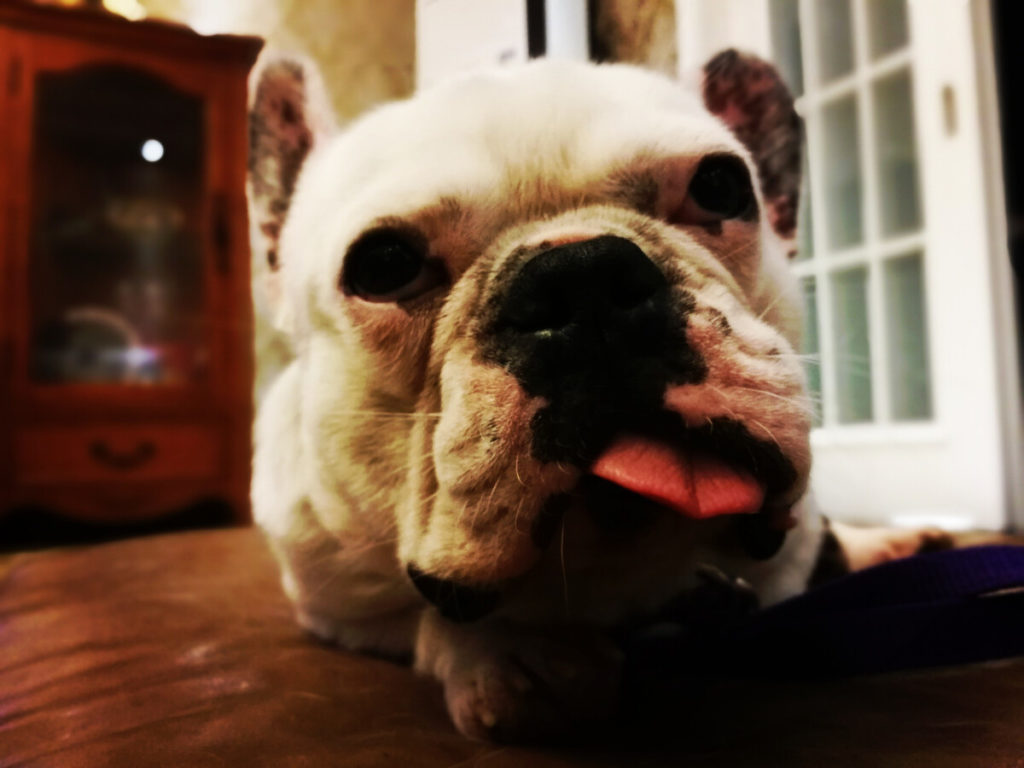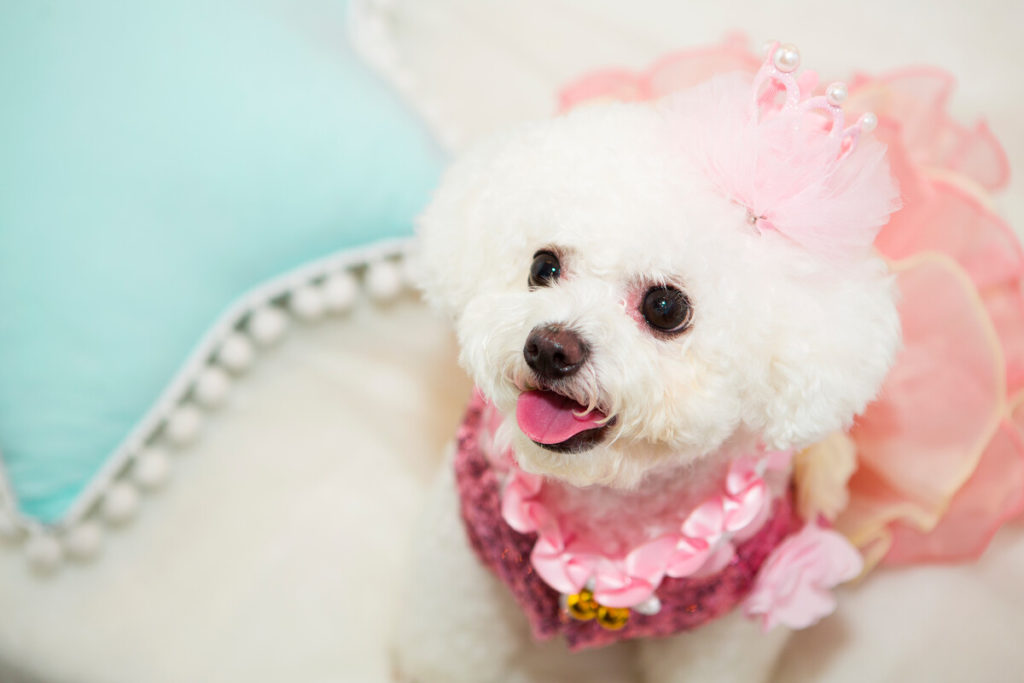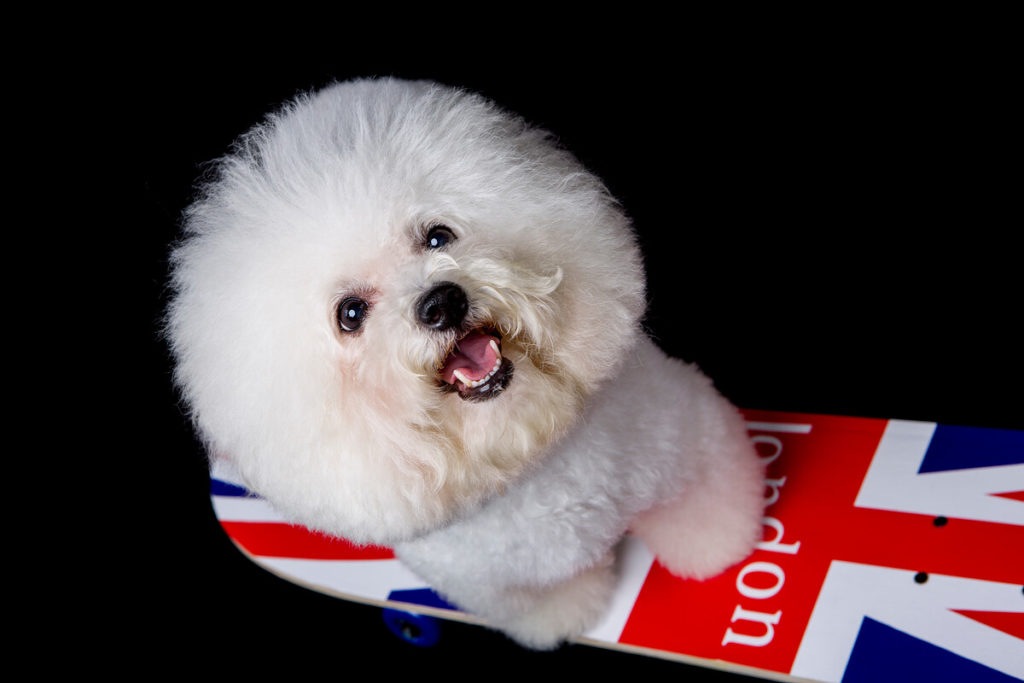Dog allergies are quite common in people. In searching for a dog to join their family, people with dog allergies will quite commonly search for a breed that is hypoallergenic. Other people actually develop their allergies over time after spending time with a dog in the house. Fortunately, there are ways in which allergies can be managed, by minimizing the amount of contact you have with allergens which may reduce the severity of symptoms.
“Hypoallergenic dogs” is a term used to describe certain breeds that are less likely to cause an allergic reaction in people who do have dog allergies. Because all dogs have dander, there are no dogs that are truly hypoallergenic, however if you have a dog allergy you will do much better with some breeds than others, due to variations in the amount and types of allergens produced, and whether or not they shed. I will use the term “hypoallergenic dog” loosely in this article to describe these breeds which are less allergy triggering than others.

So, are French bulldogs hypoallergenic? French bulldogs are not hypoallergenic dogs. They are not included on the American Kennel Club (AKC)’s list of Hypoallergenic Dog Breeds. This does not come as a huge surprise seeing that French bulldogs are heavy shedders, which is one of the main sources of dog allergens, along with the fact that they are indoor dogs, so they are likely to trigger dog allergies.
Although French bulldogs are not hypoallergenic, most people are able to manage their allergies while still keeping their French bulldog. Some of the strategies that can be used will be outlined in this article.
What Causes Dog Allergies?
Like most other allergies, dog allergies are caused by otherwise harmless substances, which trigger a response from the immune system, and the body reacts in attempt to flush these out, which is the resulting symptoms. These triggering substances are called allergens.
Dog allergies are caused by very small particular allergens, which can come into direct physical contact with us, or become suspended in the air. Once inhaled, these allergens trigger the immune system, causing an allergic reaction, with varying symptoms.
Dog allergens are proteins that are found mainly in:
- Saliva.Produces an allergen called Can f 1 (Canis familiaris allergen 1). Saliva is the major allergen. Like most other dogs, French bulldogs tend to lick their fur, which can cover their coat in these allergens which spread throughout the house as they shed.
- Dander.Dry flakes of dead skin cells are present in dogs’ fur, called dander (similar to dandruff of humans), and are released when fur is shed. As French bulldogs are mainly indoor dogs, this means that every time a French bulldog sheds its fur (i.e. all day, every day, all year round) it releases allergens throughout your home.
- Urine.There are also allergy triggering proteins that are present in your French bulldog’s urine.
- Fur. Although not an allergen itself strictly speaking, the fur can hold quite a lot of allergens, such as dander, saliva, pollen and dust.
What Are The Symptoms of Dog Allergies
The type and severity of symptoms experienced will vary between different individuals who have the same allergy.

Symptoms of dog allergies may include:
- Itchy, irritated skin
- Itchy, irritated, watery or red eyes
- Runny, itchy, stuffy nose
- Sneezing
- Coughing
- Wheezing
- Itchy nose, throat
- Shortness of breath
- Chest tightness
- Hives or rash on the skin
- Puffy face
Dog allergens may also trigger symptoms of other conditions, including asthma and hay fever.
20 Steps to Control Your French bulldog Allergy.
Just because you have an allergy does not always mean you need to part way with your best friend. Keeping your dog allergy under control comes down to minimizing the amount of allergens in and around your home, on a consistent basis. Here’s 20 steps you can follow to control your French bulldog allergy:
- Get a proper diagnosis. An allergen management plan cannot be well planned and executed if you do not have a proper diagnosis. If you haven’t already done so, seek the advice of your local allergist. It is important to specify whether your allergy is to your French bulldog, or to other potential allergens such as dust mites, pollen, and others, as well as other similar conditions which may be triggered by pets such as hayfever and asthma.
- Brush your French bulldog regularly to remove loose fur and dander. Tip: brush your French bulldog outside to minimize the amount of fur and dander that circulates inside the house.
- Bathe your French bulldog regularly. There currently isn’t definitive evidence to say that bathing your French bulldog regularly will help with your allergy symptoms, although this seems to be the general consensus amongst experts. However, it is important to not bathe your French bulldog too frequently , as this will dry out the skin and cause more flaking. Bathing any more frequently than once a fortnight is not recommended. The best recommendation I can give is to experiment on your own, and figure out what frequency works best for both yourself and your French bulldog. If you can, get someone else to do the bathing rather than you. For the best results, use a gentle, hypoallergenic shampoo and conditioner.
- Vacuum regularly, with a HEPA filtered vacuum cleaner. HEPA (High-Efficiency Particulate Absorber) filters essentially allow the vacuum cleaner to trap the vast majority of even the finest particles (including allergens), as opposed to a standard vacuum cleaner which would simply recirculate these particles back into the air inside your home. If you’re currently using a vacuum cleaner with a regular filter, this step could give you the most bang for your buck.
- If possible, replace your carpeted floors with a hard surface, such as tile or hardwood. Dander and fur will tend to become trapped within the carpeting, causing a build-up of allergens. I found that even using a specialized pet vacuum will fail to remove all of the stubborn French bulldog furs from carpet, especially older carpets. For the same reason, get rid of your rugs and mats if possible.
- Wear a face mask when cleaning. Even with a HEPA-filter fitted vacuum cleaner, cleaning can cause allergens to become displaced and airborne. If you’re very sensitive, a mask is recommended.
- Avoid sweeping your floors. Although this can be a great way of cleaning up French bulldog fur around the home without having to bring out a heavy vacuum cleaner, you should avoid sweeping if you’re allergic as this can cause the allergens to become airborne.
- Use a HEPA-filter air purifier to reduce the concentration of allergens in certain rooms around your home. This is especially recommended in your living room and/or bedroom.
- Wash your hands immediately after handling your French bulldog, this includes touching, hugging, kissing and so on. Any direct physical contact with your French bulldog will mean you come into contact with allergens, so wash off affected areas as soon as possible.
- Do your laundry regularly. Wash your bed sheets, couch covers, dog bed, doormats etc. regularly especially as French bulldogs like to lick things. Tip: Check the care label and use high-temperature settings on your washing machine to remove more allergens.
- Set boundaries within your house. Most French bulldogs will share their owner’s bed. If you have severe allergies, keep your French bulldog out of the bedroom, and off the bed. By doing so, you will be able to create a relatively “safe-haven”, where allergens will inevitably still be present but at much lower concentrations. You may want to consider crate training your French bulldog from an early age as this can help. Using this step in conjunction with a HEPA air filter can go a long way.
- Wash toys frequently. Not only is this recommended for hygiene purposes, washing your French bulldog’s toys will remove dried saliva, one of the main allergens, which can spread around your home.
- Use an allergy control spray. Allergy control sprays can be used to essentially denature the proteins which trigger allergies, neutralizing them. The Allergy Asthma Clean Allergen Spray (click here to check the price on Amazon) is effective and can be used on all surfaces without having to worry about staining or discoloration as it does not use tannic acid as an active ingredient like some other sprays do. This can be a cost effective way to control the allergen levels if used consistently. A monthly spray around the house is recommended, simply spray directly onto carpets, clothing, mattresses and furniture.
- House train your French bulldog. The protein allergens are also found in the urine of your French bulldog. Therefore, by having your French bulldog go to the bathroom outside of your house, rather than on a pee pad, or artificial grass patch, you can reduce the quantity of these protein molecules that become airborne or spread through other ways and linger inside your house. However, inevitably a small amount of the urine may stick to your French bulldog’s skin, spread over its body and onto your furniture.
- Clean furniture regularly. Your FURniture is a hotspot for collecting French bulldog fur. Thankfully, many sofas these days come with removable covers that can be washed separately. I have a fabric cover sofa I picked up from Ikea which can be removed from its cover like a pillow. I also purchased an extra cover set, which allows me to regularly swap out the used cover for a fresh one and wash the used one, without going for days without a cover while the laundry dries. This keeps my sofa clean of dander and fur while not having to sacrifice being able to use it. You can apply similar cleaning cycles to other furniture, such as seat covers, rugs, and so on.
- Minimize contact with your French bulldog. This is probably the most difficult, as French bulldogs are little bundles of joy and love the companionship of humans. However, keeping contact to a minimum may help if you’re struggling with your allergy symptoms.
- Use your allergen medication preventatively. Whether you use an over-the-counter or prescription medicine to manage your symptoms, taking a proactive rather than reactive approach can help you avoid symptoms before they appear. Always follow the directions of your doctor and pharmacist.
- Avoid allergen dense situations. Dog parks and local French bulldog meets may be a great weekend pastime and socialising opportunity for your French bulldog, however be mindful that more dogs around you means more allergens.
- Be mindful of other dog owners. Even if you don’t come into contact with their dog directly, the allergens can easily stick to the owner’s clothing and belongings. Therefore just bear in mind that you may come in contact with allergens even if the dog isn’t present.
- Don’t keep your French bulldog outside. While not an allergy control strategy, this may be tempting if you’re suffering from allergy symptoms in an attempt to reduce dander around your home and alleviate symptoms. French bulldogs are strictly an indoor breed and are not suited to live outside the home, especially in hot weather.

What should I do if symptoms do not improve?
Be aware that it is unlikely that your symptoms will disappear immediately, it will require a bit of patience and a combination of multiple, if not all of the steps above to notice a significant difference.
If your allergies are severe, and you’ve tried the allergen control methods above and this does not bring it down to a manageable level, you may have to be prepared to give it up to your family or for adoption.
Should I Get A French bulldog If I’m Allergic?
Everyone has a different tolerance level when it comes to allergies, and will experience different severity and type of symptoms. With dogs, every breed will trigger your allergy differently, some more than others. You may be able to control your allergy using some of the strategies listed above, or the symptoms may be quite severe to the point that you aren’t able to manage keeping a French bulldog long term, either way, you won’t know until you’ve tried.
If you know you have a dog allergy, and are considering getting a French bulldog, I would recommend that you house sit a French bulldog, either from a local rescue or from a family or friend. Monitor your symptoms and test out some of the easier steps listed above, and see whether or not they bring down your symptoms to a more manageable level.
If you’re still experiencing severe symptoms, you may want to consider another breed (even a mix French bulldog breed), or putting off getting a dog for now.

Related Questions
Are French bulldog mix breeds hypoallergenic?
Mix breeds are a bit harder to say whether or not they will be hypoallergenic. Genetics can be hard to predict in terms of which characteristics will be passed on, not only in physical appearance but also other factors such as whether or not they shed their coats.
There will be variances between dogs of the same mix-breed, even within the same litter. They can also be multi-generational cross breeds, meaning they aren’t necessarily exactly 50/50 between two purebred parents.
We established earlier that not breed is truly hypoallergenic. However we also know that a breed’s tendency to trigger allergies highly depends on the nature of which it spreads its allergens such as dander, through means such as shedding. Therefore we can make some reasonable assumptions on how allergenic a breed is relatively, based on its coat characteristics and whether or not they shed. Essentially a breed that sheds heavily such as the pure breed French bulldog should trigger allergies more than a breed that sheds less or does not shed.

What breed of dogs are Hypoallergenic?
If you are quite severely allergic to dogs, and are considering adopting/buying a French bulldog, you may want to consider another breed. As mentioned before, no breed will be truly hypoallergenic, however there are other breeds that are less likely to cause your allergy to flare up and trigger symptoms.
Here’s the AKC’s “list of Hypoallergenic breeds”:
- Affenpinscher
- Afghan Hound
- American Hairless Terrier
- Barbet
- Bedlington Terrier
- Bichon Frise
- Bolognese
- Chinese Crested
- Coton de Tulear
- Giant Schnauzer
- Irish Water Spaniel
- Kerry Blue Terrier
- Lagotto Romagnolo
- Maltese
- Peruvian Inca Orchid
- Poodle (Toy/Minituare/Standard)
- Russian Tsvetnaya Bolonka
- Soft Coated Wheaten Terrier
- Standard Schnauzer
- Xoloitzuintli
Take this list with a grain of salt, however as despite the above list, a study published in 2012 concluded that “There is no evidence for the classification of certain dog breeds as being “hypoallergenic.”




